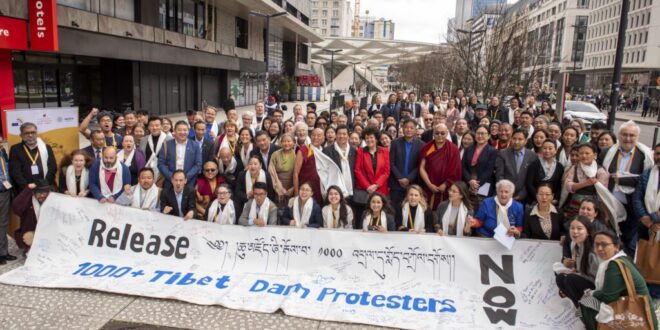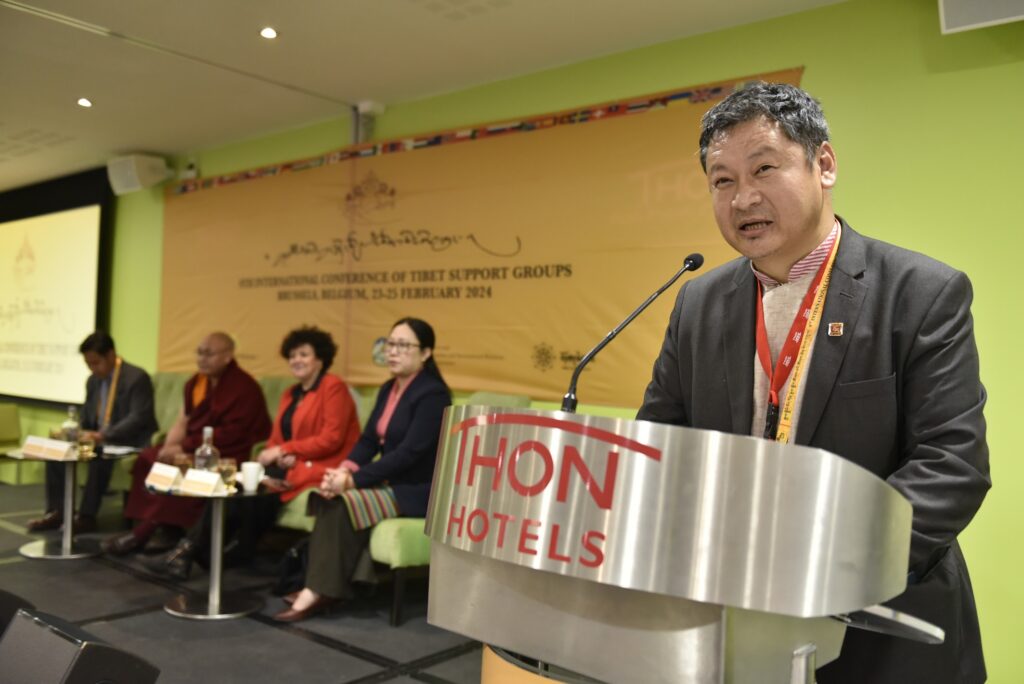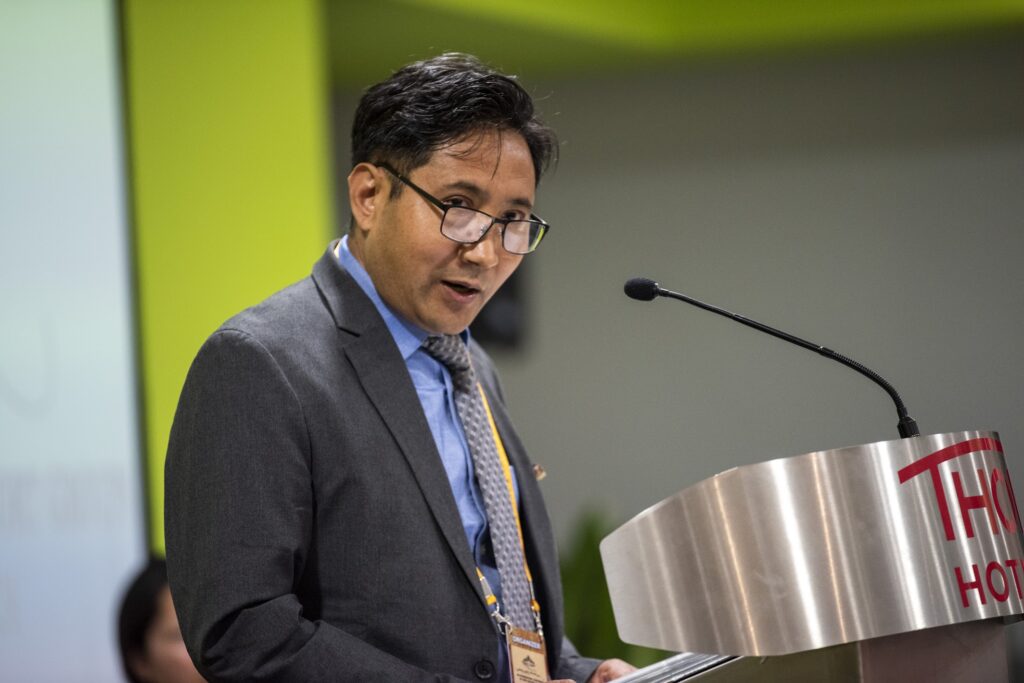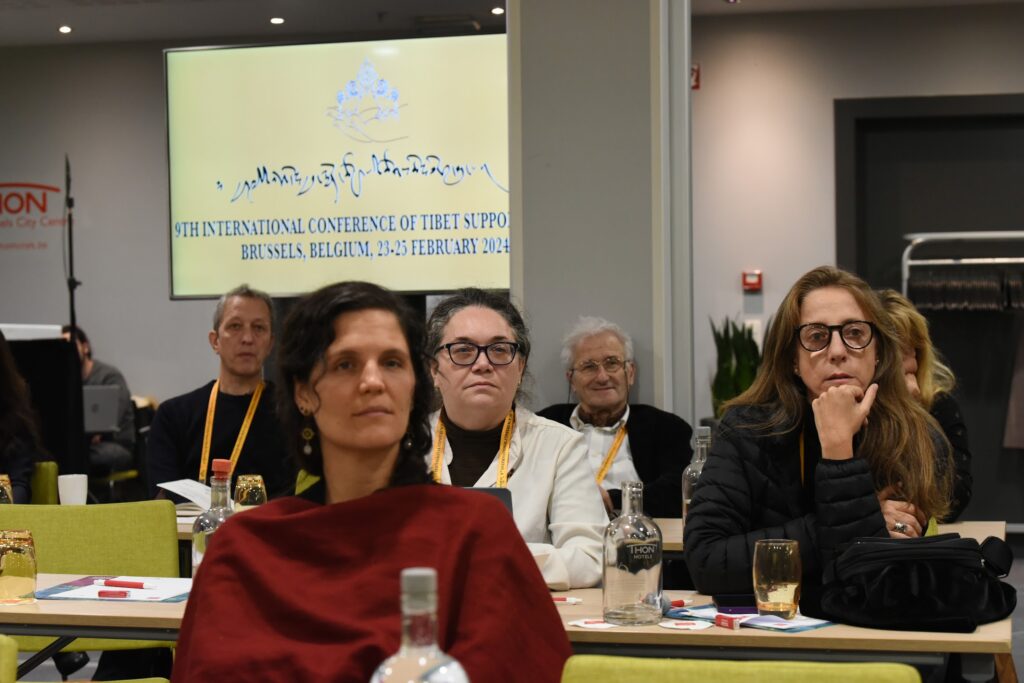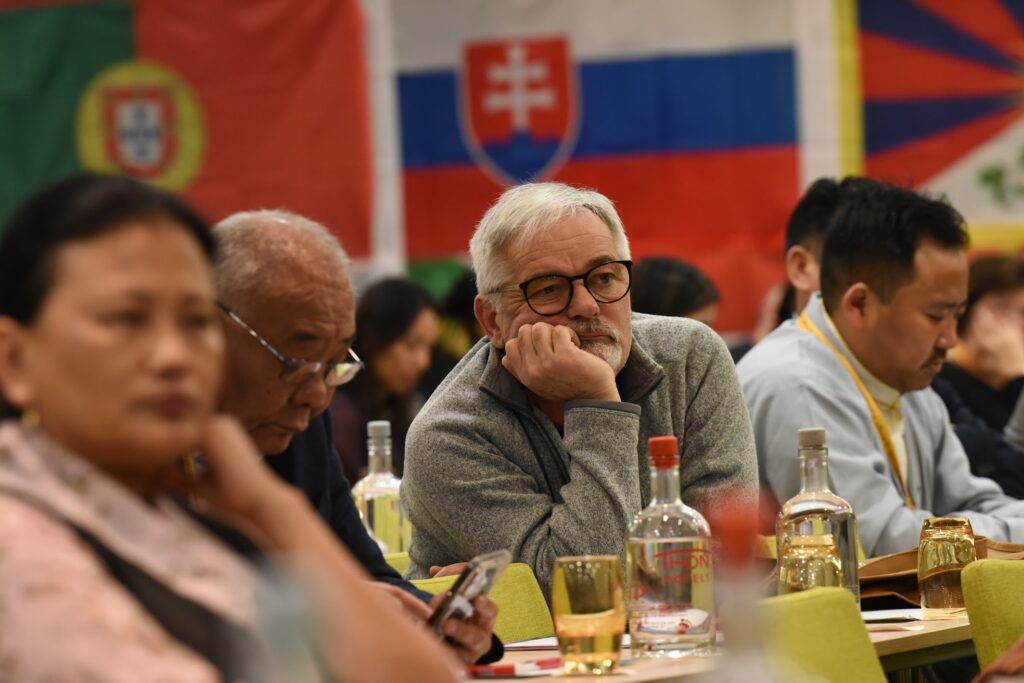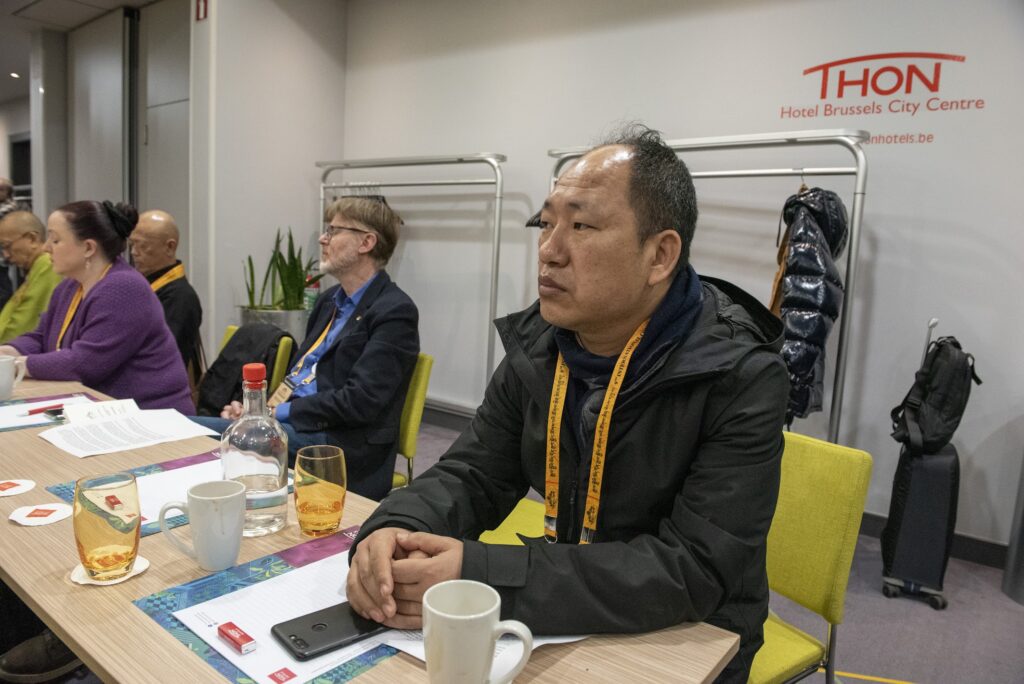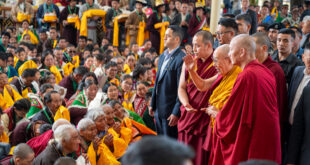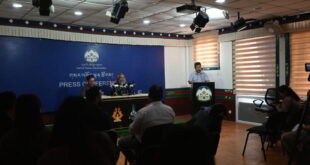Brussels: The three-day International Conference of Tibet Support Groups, which was facilitated by the Office of Tibet-Brussels and the Department of Information and International Relations (CTA), concluded successfully on 25 February 2024.
During the closing ceremony, Speaker Khenpo Sonam Tenphel of the Tibetan Parliament in Exile, Kalon Norzin Dolma of the Department of Information and International Relations, and Senator Eustache-Brinio, Chair of the French Parliamentary Group for Tibet, delivered speeches, sharing their insights and perspectives. Additional Secretary Tenzin Lekshay from the Department of Information and International Relations (CTA), as the master of the ceremony, led the closing session.
Speaker Khenpo Sonam Tenphel stressed in his keynote speech that issues pertaining to Tibet need to be addressed on a deeper level than politics because they affect the survival and maintenance of Tibetan culture, which is based on compassion and nonviolence.
He also recognised the critical roles played by Tibetan advocates and support groups in determining the development of the Tibetan struggle. He stressed that the history of Tibet holds great significance, and the selfless dedication of support groups is highly valued. Tibet needs support now more than ever, and it is crucial that the international community views the Tibet-China conflict as an international issue rather than as China’s internal matter, as the PRC dictates.
He further demanded that decision-makers and policymakers comply with international law and refrain from endorsing or acknowledging China’s sovereignty claims over Tibet in any way. The Speaker added, “Apart from the routine operations of the legislative body, the Tibetan Parliament-in-Exile has programs to reach out to international and Indian parliament members and the general public in India through state advocacy campaigns”.
The Speaker concluded by stating that the Tibetan Parliament-in-Exile is organising the 9th World Parliamentarian Convention on Tibet in Tokyo, Japan. He hoped that many members of the parliament would attend with the assistance and support of those attending the 9th International Tibet Support Groups Conference.
Senator Jacqueline Eustache-Brinio, who also serves as the President of the French International Information Group on Tibet, highlighted in her valedictory speech that the Chinese authorities continue to undermine the three main pillars of Tibetan identity: religion, language, and culture. She further stated that the Tibetan religion is being closely monitored and disrespected, while the Tibetan language is being neglected in educational and professional settings. Even Tibetan children are being forced to attend boarding schools where they are taught in Chinese and indoctrinated to adopt a new Chinese identity.
“She stated that all the measures taken by the authorities which destroy the Tibetan people’s identity and the natural environment not only worsen their suffering but also raise concerns for Western countries. Therefore, it’s imperative that every political institution, NGO, and public figure should speak out clearly on the issue of Tibet, regardless of economic interests, to inform Beijing authorities of what is unacceptable to them. As senators of the Information Group on Tibet, we will continue to intervene with the French Government for the prisoners in Tibet as well as for Tibetans who come to seek asylum and to denounce the failure to respect human rights.”
In her concluding address, Kalon (Minister) Norzin Dolma of the Department of Information and International Relations emphasised the importance of the 9th International Conference of Tibet Support Groups as a symbol of the continued relevance of the Tibet cause. “This cause has been primarily shaped by the spirit and commitment of His Holiness Dalai Lama to compassion, nonviolence, dialogue, and reconciliation,” she remarked.
She also thanked the participants for voluntarily contributing their time, energy, expertise, and resources to the Tibetan’s struggle for freedom over the years. The impact of their efforts has been felt internationally, with an increased spotlight on Tibet and greater visibility for the cause. This has led to increased pressure on the PRC government and the international community through innovative grassroots activism, parliamentary procedures, lobby efforts, media engagements, and the utilisation of UN initiatives and different mechanisms. She also expressed gratitude for the participants’ sense of kinship, connectedness, and commitment to the cause of Tibet and to the people of Tibet. Their efforts have been vital for seeking a resolution to the long-standing Sino-Tibet conflict and improving the human rights situation inside Tibet.
“Moreover, Kalon spoke about Tibet and how China’s harsh policies have resulted in the gradual elimination of Tibetan culture, language, and identity. This includes the curtailment of religious freedom, intensified surveillance, restrictions on movement and trade, ecological damage, and water insecurity. These challenges persist, but the collective efforts of the Tibet Support Groups and Central Tibetan Administration have yielded some positive results, bringing Tibet back into the global spotlight. However, there is still much work to be done, and we must continue to work together with a strategic approach to make further breakthroughs in areas we have not yet reached. We must also consolidate and reinforce the progress we have already made in order to achieve the ultimate resolution of the conflict in Tibet through dialogue.”
Secretary Karma Choeying of the Department of Information and International Relations delivered a vote of thanks. He emphasised that “we are complementary partners rather than competitors. Therefore, we must work closely with a sense of camaraderie and unity. Many of you have been supporters of Tibet for a long time, and your association with us and indelible commitment to the cause is a testament to your genuine concern for the fight of the Tibetans. I have no doubt about it.”
“Our fight for freedom for Tibet and a peaceful world is not just our fight alone. We have a responsibility to pass on the baton to the younger generation to continue the struggle. In 2021, under the leadership of Sikyong Penpa Tsering, the Central Tibetan Administration initiated the Voluntary Tibetan Advocacy Group (VTAG) to encourage young Tibetans from different parts of the world to actively advocate for the Tibetan cause. We currently have 521 motivated young Tibetans in 39 VTAGs across 18 countries, and we are working hard to bring more young people into the network to carry on the legacy of our generation. These young advocates are expected to work closely with Tibetan Support Groups (TSGs) and other stakeholders to promote the Tibetan cause,” the Secretary concluded.
Additional Secretary Tenzin Lekshay, DIIR, during the closing session of the conference. Photo / Tenzin Jigme Taydeh / CTA
Members of the Tibet Support Group during the closing session of the conference. Photo / Tenzin Jigme Taydeh / CTA
Members of the Tibet Support Group during the closing session of the conference. Photo / Tenzin Jigme Taydeh / CTA
